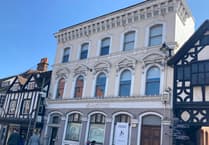WORK on a controversial new petrol station on the Farnham by-pass looks set to start by the end of the year.
Waverley councillors ended six months' of debate to reluctantly grant the scheme planning permission.
After three site visits and five meetings, Waverley councillors voted 28 to 19 in favour of BP's 24-pump station at Darvills Lane at a full council meeting on Tuesday night.
But it was a permission granted with great reluctance and for purely pragmatic reasons.
Not a single councillor spoke in favour of the proposed petrol station, arguing it is not needed, will create congestion and deplete land near a flood plain.
The majority of councillors, in effect, voted not so much in favour of the petrol station as against having to fight a likely planning appeal from BP if the plans had been rejected - an appeal those councillors did not feel confident of winning.
This is because BP already has permission to build a much larger station on the same site - won on appeal in 1989 - and councillors who backed the new application felt there are no fresh grounds for a winnable appeal.
Voting was generally along party lines, with the ruling Conservatives largely voting in BP's favour, with the Liberal Democrats imploring colleagues to fight the application.
Indeed, in line with their planning officer's advice, councillors on Waverley's Western Area Planning Sub-committee originally refused the application last November.
When that refusal went for formal ratification at a higher committee, Conservative Leader of Waverley Bernard Foulkes took the unusual step of referring the matter to the full council for final approval.
Mr Foulkes saw no fresh grounds for refusing BP's smaller application, but was accused by Liberal Democrat opponent Dr Rosemary Thomas of simply wanting to avoid the costs of fighting a possible appeal.
His opinion was unchanged on Wednesday.
"This is a most unwelcome application but I believe the credibility of the council is at stake as a planning authority.
"We've looked at all the other areas for appeal. I feel we should now very very reluctantly put our prejudices to one side and concentrate on planning issues."
Fellow Tory David Harmer, who soon takes over from Mr Foulkes as Waverley leader, was of a similar mind, urging colleagues to adopt a "quasi-judicial" approach to the application.
"If we refuse consent it's almost inevitable BP will appeal and we would have to apply some reasons for refusal and I can't see what those would be at the moment.
"A planning inspector will ask three questions: "Is the previous permission still valid?" - it is; "Do you have the support of the highway authority for refusal?" - we don't, and "Do have the support of the Environment Agency for protecting a flood plain? - we don't. We may not like it, but we have to consider the rules."
And senior planning officer Steve Thwaites also advised councillors not to act in a "campaigning mode".
But Liberal Democrats led calls for refusal.
Most vocal in their anti-BP stance were Farnham ward Lib Dems Victor Duckett, Duncan Steel, Marie King-Hele, Willy Marshall and Dr John Cresswell - although there was some cross-party support from Conservatives David Munro and Graham Lambert.
There was much reference to forthcoming planning guidance from the government likely to make development on or adjacent to flood plain land much more difficult.
"The planning policy will be a step-change in our approach towards the risks of flooding," said Duncan Steel.
"It says there should be no essential building where there is water or where water is held. We have to recognise this flood plain and land next to water courses."
But the Darvills Lane site, despite being waterlogged during last autumn's floods, is not officially a flood plain and the Environment Agency had told Waverley it could not support the council on flooding grounds if it went to appeal.
After the debate councillors went into private session to discuss legal arguments before voting in favour of BP.



